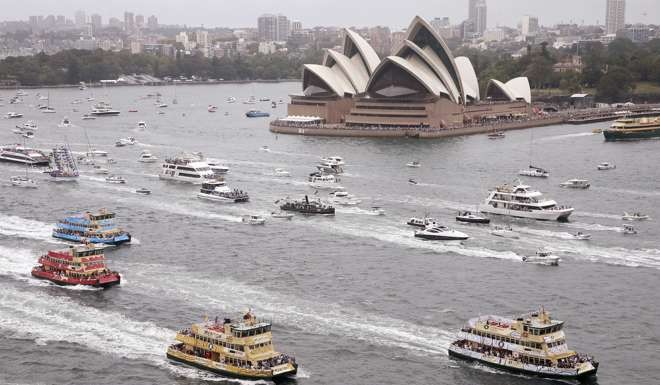
Thousands march demanding change to Australia Day, citing aboriginal injustices
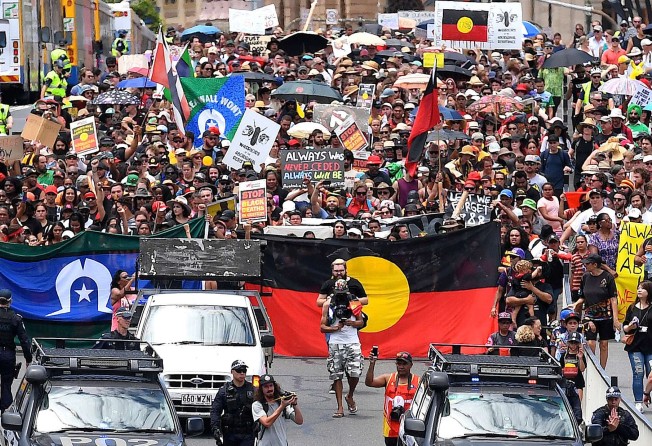
Thousands of people turned out in cities across Australia on Thursday, the country’s national day, to protest a date that they say celebrates European invasion and the ongoing persecution of Aboriginal people.
Large gatherings formed in Sydney and Melbourne - with the red, yellow and black Aboriginal flag prominent - to mark a day that has become increasingly divisive in recent years, with many now referring to it as “Invasion Day”.
Australia Day, which falls on January 26 each year, marks the arrival of the First Fleet, the flotilla of 11 ships that arrived in Sydney’s Botany Bay from England to establish a penal colony that became the first permanent European settlement on the Australian continent.
Protesters have called for the date to be changed to make it more inclusive, and to recognise the historical persecution of Australia’s indigenous population as well as their ongoing struggles.

Ian Macfarlane, a former minister in Prime Minister Malcom Turnbull’s government who retired from politics last year, became a rare conservative voice to call for the date to be changed.
He suggested Australia’s national day commemorate March 1, 1901. On that date, a newly created Australian federal government took over many of the functions of the six British colonies that preceded it.
“It’s about healing a wound, drawing a line, getting on with the really important issues facing our indigenous communities,” Macfarlane said in a speech in Melbourne.
Turnbull responded to the protests, saying that he believes there are higher priorities to be dealt with before a symbolic date change.
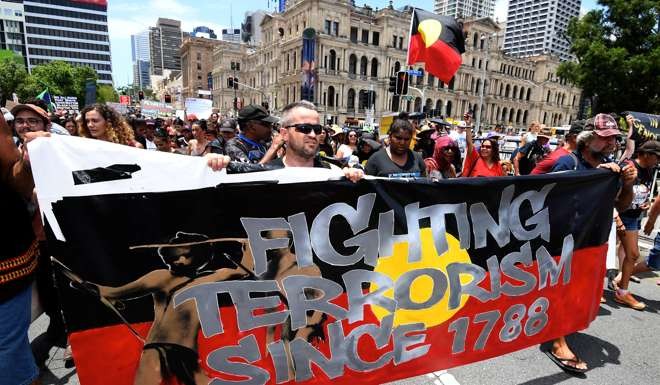
“There are many bigger and more profound issues -- including Constitutional recognition (of Aboriginal peoples) - to deal with than the date of Australia Day,” he said, according to the Australian Broadcasting Corp.
“It is a debate everyone is entitled to have but it is not a change the government supports,” he added.
Deputy Prime Minister and leader of the conservative National Party, Barnaby Joyce, was less gracious when asked his opinion, particularly on the issue of “black armband history,” or the need for Australians to recognise past injustices.
“I just get sick of these people who every time, every time there’s something on, they just want to make you feel guilty,” he said.
“They don’t like Christmas, they don’t like Australia Day, they’re just miserable, gutted people and I wish they would crawl under a rock and hide for a little bit.”
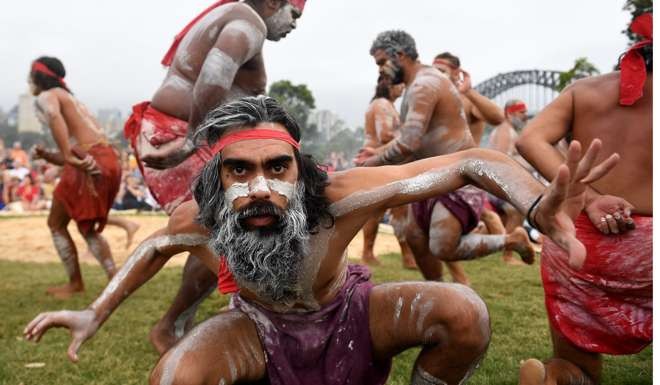
But many Aboriginal leaders have backed the call for change, saying it is a step towards the healing of past wounds.
“Most Aboriginal indigenous people want to celebrate Australia Day and they feel they are Australians, that they are part of the Australian community,” said prominent Aboriginal leader and head of the prime minister’s Indigenous Advisory Council, Warren Mundine.
The date of Australia Day marks the loss of land, massacres, people being forced onto reserves and the destruction of languages and culture, Mundine said.
“It was just like the end of the world for a lot of communities,” he said.
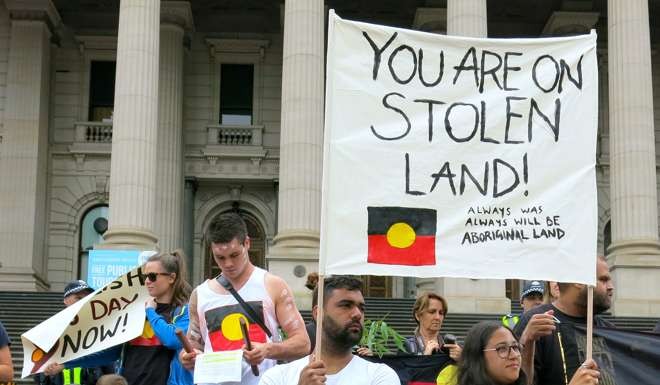
Australia’s 700,000 or so indigenous Aboriginal and Torres Strait Islander people still struggle with the impacts of colonisation and track near the bottom of the country’s 23 million citizens in almost every economic and social indicator.
Aborigines face a 10-year gap in life expectancy compared with other Australians and make up 27 per cent of the prison population, but are just three per cent of the population.
Additional reporting by Reuters and Associated Press